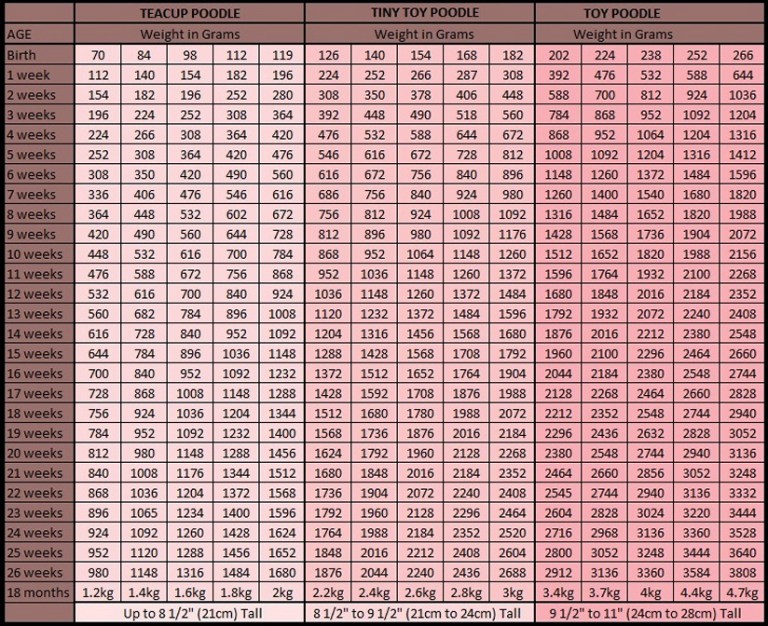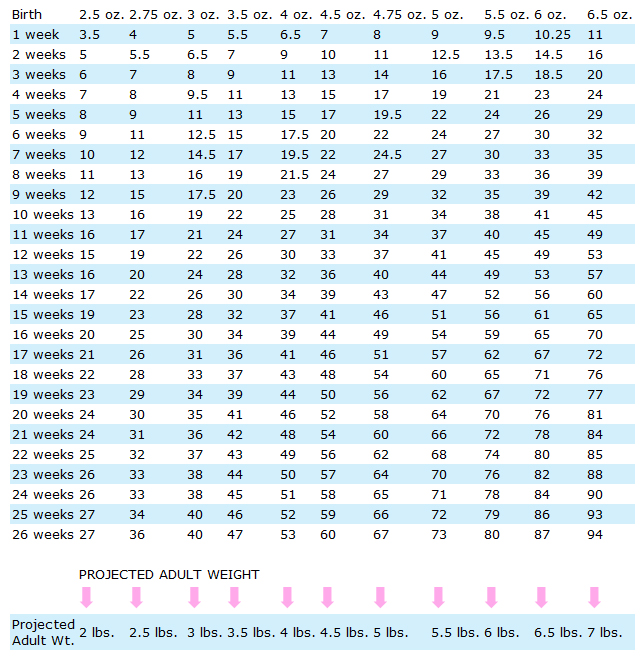When it comes to toy poodles, one question that often arises is how much they weigh at 8 weeks. Well, you might be surprised to learn that at this stage of their development, toy poodles typically weigh around 1.5 to 2 pounds. That’s quite small, considering that toy poodles are known for their petite size. But don’t let their tiny stature fool you, because they have big personalities and plenty of love to give.
Understanding the weight of a toy poodle at 8 weeks is crucial for pet owners and breeders alike. Poodles, including toy poodles, go through rapid growth during their early weeks, and monitoring their weight is vital to ensure their overall health and development. By knowing the average weight range for an 8-week-old toy poodle, you can gauge if your puppy is on track or if there are any concerns to address. So, whether you’re planning to bring home a toy poodle or you’re already a proud owner, keeping an eye on their weight is essential for their well-being.
A toy poodle typically weighs between 1.5 to 2.5 pounds at 8 weeks of age. At this stage, they are still growing rapidly and should be fed a balanced diet to support their development. It’s important to note that individual puppies may vary in weight, so consulting with a veterinarian is recommended for guidance on the specific needs of your toy poodle.

Understanding the Weight of a Toy Poodle at 8 Weeks
Toy poodles are adorable and popular small dog breeds known for their intelligence, charm, and affectionate nature. If you’re considering getting a toy poodle puppy, it’s important to understand their growth and development, particularly when it comes to their weight. At 8 weeks old, toy poodles are still small and delicate, but they have already started gaining weight since birth. In this article, we will explore how much a toy poodle typically weighs at 8 weeks and what factors can influence their weight.
Normal Weight Range for Toy Poodles at 8 Weeks
At 8 weeks old, toy poodle puppies typically weigh between 1.5 to 2.5 pounds (0.7 to 1.1 kilograms). However, it’s important to note that each toy poodle puppy is unique, and there can be slight variations in weight based on factors such as genetics, diet, and overall health. The weight of a toy poodle at 8 weeks can give you a general idea of their growth, but it is not an accurate predictor of their adult size or weight.
Toy poodles are considered toy-sized dogs, and they have a characteristic small frame. As they continue to grow, their weight will increase gradually. By the time they reach their full adult size, toy poodles typically weigh between 4 to 6 pounds (1.8 to 2.7 kilograms). Keep in mind that there can be some individual variation within this range, with some toy poodles weighing slightly more or less.
Factors That Influence the Weight of Toy Poodles
Several factors can influence the weight of a toy poodle puppy at 8 weeks old. Understanding these factors can help you better understand your puppy’s growth and ensure they are developing healthily. Here are some important factors to consider:
Genetics
The genetics of a toy poodle plays a significant role in determining their adult size and weight. If your puppy’s parents are both small-sized toy poodles, it is more likely that they will also be on the smaller side. Genetics can affect the overall structure and growth pattern of toy poodles, including their weight at different stages of development.
Feeding Habits
The type and amount of food your toy poodle puppy eats can greatly impact their weight gain. It is essential to provide them with a balanced diet that meets their nutritional needs. Consult with your veterinarian to determine the appropriate portion size and frequency of meals for your puppy. Overfeeding can lead to excessive weight gain, while underfeeding can result in slow growth and development.
Physical Activity
Physical activity and exercise are important for a toy poodle’s overall health and weight management. Regular play sessions, walks, and mental stimulation can help keep your puppy active and prevent excessive weight gain. It’s important to strike a balance between exercise and rest to avoid straining their growing bodies.
Overall Health
A puppy’s overall health can impact their weight and growth. Certain health conditions or underlying illnesses can affect their appetite and ability to gain weight. Regular veterinary check-ups and deworming are essential to ensure your toy poodle puppy is healthy and growing appropriately. If you have concerns about your puppy’s weight, it is recommended to consult with a veterinarian.
Monitoring Your Toy Poodle’s Weight
It is important to monitor your toy poodle’s weight as they grow to ensure they are within a healthy range. Regular weigh-ins and observation can help you track their growth progress. If you notice any sudden changes in weight or if your puppy is not gaining weight as expected, it’s best to consult with a veterinarian for guidance and a professional examination.
During the early stages of a toy poodle’s life, weight gain is rapid. By 8 weeks old, they are still small and delicate, but have already gained some weight since birth. As they continue to grow, their weight will gradually increase, but it varies based on genetics, diet, and overall health. Monitoring their weight and ensuring they receive proper nutrition and care are essential for their healthy growth and development.
Comparison of Toy Poodle Weight at Different Stages of Development
| Age | Weight Range |
|---|---|
| 8 weeks | 1.5 to 2.5 pounds (0.7 to 1.1 kilograms) |
| 4 months | 2.5 to 4.5 pounds (1.1 to 2 kilograms) |
| 8 months | 3 to 6 pounds (1.4 to 2.7 kilograms) |
| 1 year (adult) | 4 to 6 pounds (1.8 to 2.7 kilograms) |
Key Takeaways – How much does a toy poodle weigh at 8 weeks?
- A toy poodle typically weighs between 1 to 3 pounds at 8 weeks.
- At this age, a toy poodle is still a puppy and is still growing.
- Proper nutrition and care are important for a toy poodle’s growth and development.
- A veterinarian can provide guidance on the ideal weight range for a toy poodle at different ages.
- Regular check-ups and monitoring are crucial to ensuring a toy poodle’s health and well-being.
Frequently Asked Questions
Here are common questions about the weight of toy poodles at 8 weeks old.
1. How much does a toy poodle typically weigh at 8 weeks?
A toy poodle usually weighs between 1 and 2 pounds at 8 weeks old. However, it’s important to note that individual puppies may vary slightly in weight.
At this age, toy poodles are still growing and developing, so their weight may fluctuate. It’s best to consult with a veterinarian to ensure your puppy’s weight is within a healthy range.
2. What factors can affect the weight of a toy poodle at 8 weeks?
The weight of a toy poodle at 8 weeks can be influenced by various factors, including genetics, diet, and overall health. Some toy poodles may have a genetic predisposition to be smaller or larger than others.
The type and quality of food they consume can also impact their weight. Providing a balanced and nutritious diet is essential for healthy growth. Regular exercise and proper vet care also play a role in a toy poodle’s weight and overall well-being.
3. Can a toy poodle be underweight at 8 weeks?
Yes, a toy poodle can be underweight at 8 weeks. If a puppy’s weight is significantly below the expected range, it may be a sign of underlying health issues or inadequate nutrition.
If you suspect that your toy poodle is underweight, it’s important to consult with a veterinarian. They can assess your puppy’s health and provide guidance on proper diet and care.
4. When should a toy poodle reach its full adult weight?
A toy poodle typically reaches its full adult weight between 6 and 12 months of age. During this time, their growth rate slows down, and their weight stabilizes.
It’s important to provide proper nutrition and monitor their weight during this period to ensure they are growing at a healthy pace. Regular check-ups with a veterinarian can help track their progress.
5. How can I help my toy poodle maintain a healthy weight?
To help your toy poodle maintain a healthy weight, it’s important to provide a balanced diet that meets their nutritional needs. Consult with a veterinarian to determine the appropriate amount and type of food for your puppy.
Regular exercise is also essential for maintaining a healthy weight. Engage in activities such as walks, playtime, and interactive toys to keep your toy poodle active and prevent obesity.

What Is The Weight Of An Average Toy Poodle?
A toy poodle typically weighs around 2 to 4 pounds at 8 weeks old.
To ensure the health and development of your toy poodle, it’s important to provide proper nutrition, exercise, and veterinary care.
